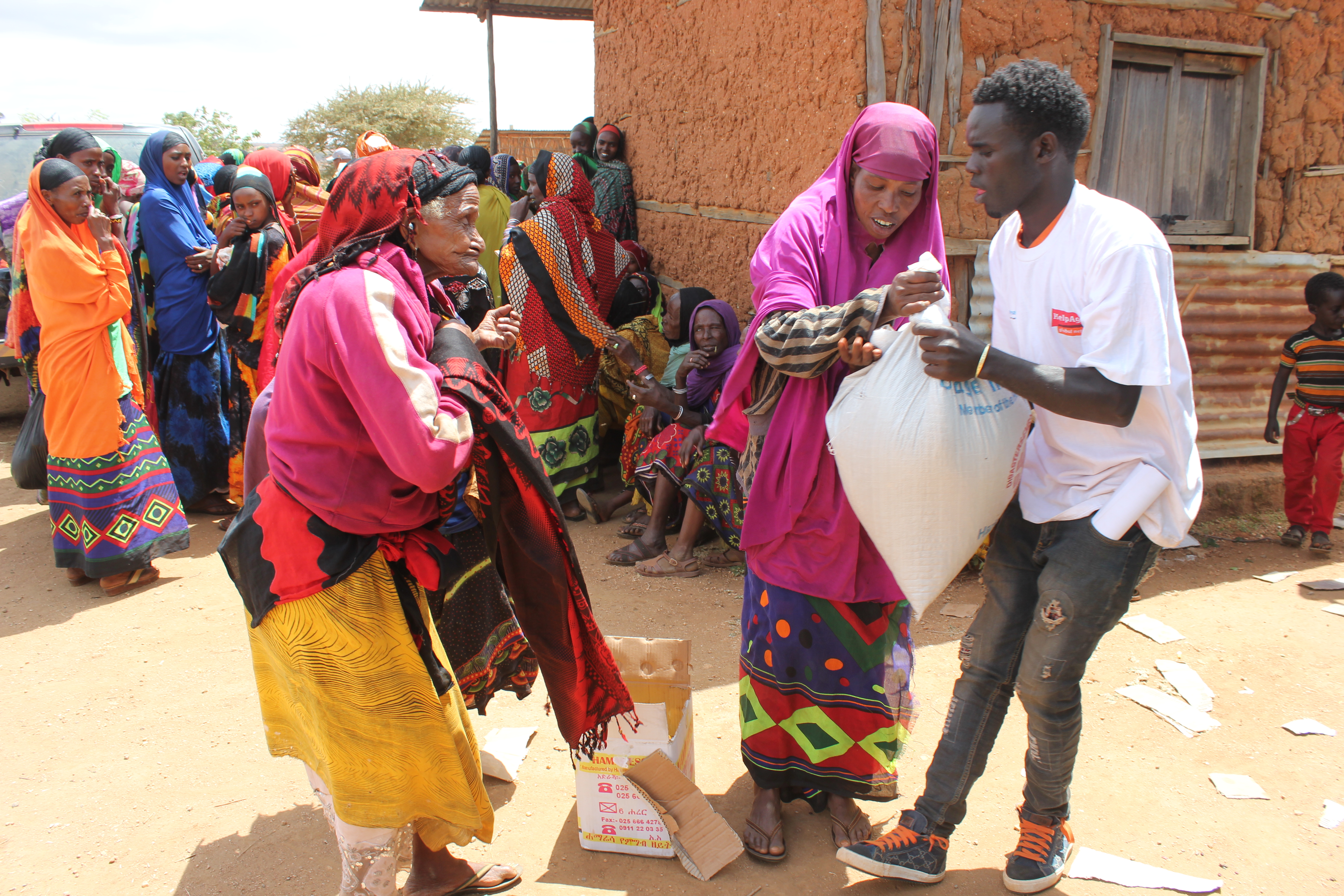
Although lives continue to be saved in East Africa, the continuing food crisis shows no signs of abating. Lucy Billings, Project Officer for Age International, explains why this emergency is proving to be particularly complex.
Today is six months since Age International and the DEC launched an appeal to save lives and fight famine in East Africa. Since then, working with our partners on the ground in Ethiopia, Kenya, and South Sudan, we have provided:
- 24,860 people with food
- 2,486 families with livestock
- 1,790 families with support to access clean water and medicine
However, lack of rains and other compounding factors mean that the situation in East Africa is not improving. The situation remains critical; older people are extremely vulnerable and the aid that you are helping us to provide is vital to their survival.
Age International’s response still focused on life-saving
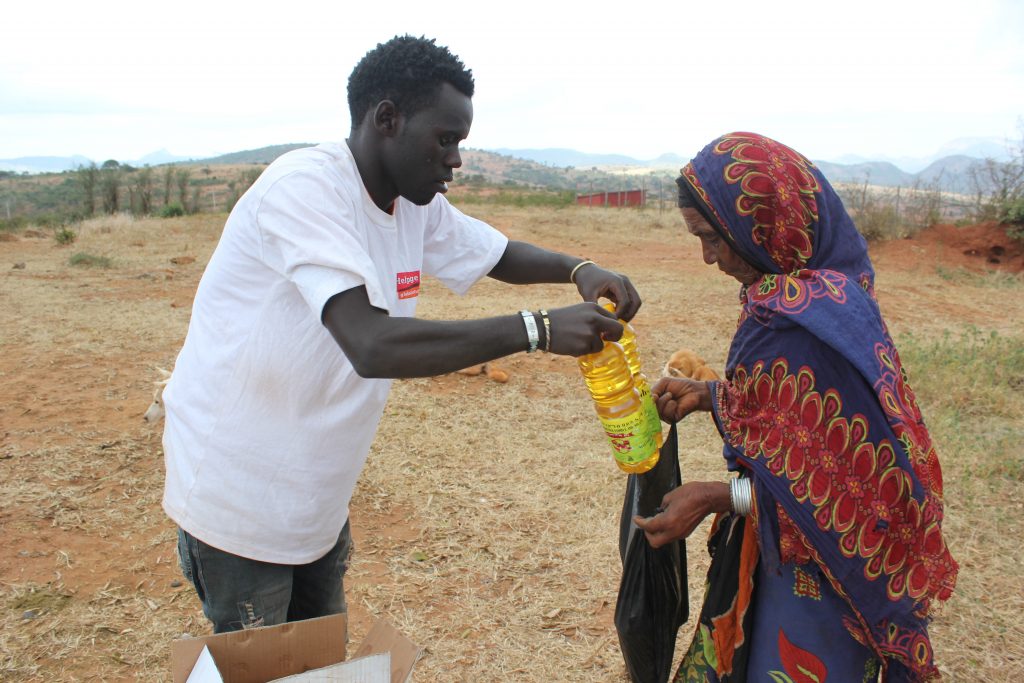
73-year-old Dima receives cooking oil in Ethiopia
Usually, at this stage in an emergency response, we would adjust our programmes to focus on long-term recovery, developing initiatives designed to help older people find new ways to earn a living, secure food for themselves, and get back on their feet.
Following the typhoon in the Philippines in 2013, for example, your donations helped 84-year-old Hilaria to get new materials so that she could re-start her sewing business. Now she is making school uniforms for local children and teaching her daughter the family trade.
In East Africa, however, the situation is so severe that our programme must remain focused on simply keeping people alive; your donations are currently helping us to reach older people in drought-hit areas with life-saving food and cash – an approach we will continue with in the upcoming months.
Why the Food crisis is escalating in East Africa
- 8.5 million people need food aid in Ethiopia, compared to 5.6 million in January
- 6 million people in South Sudan – about 50% of the total population – are severely food insecure, compared to 4.9 million in February
There are a number of complex overlapping reasons for this, including:
Sheer unprecedented size and scale
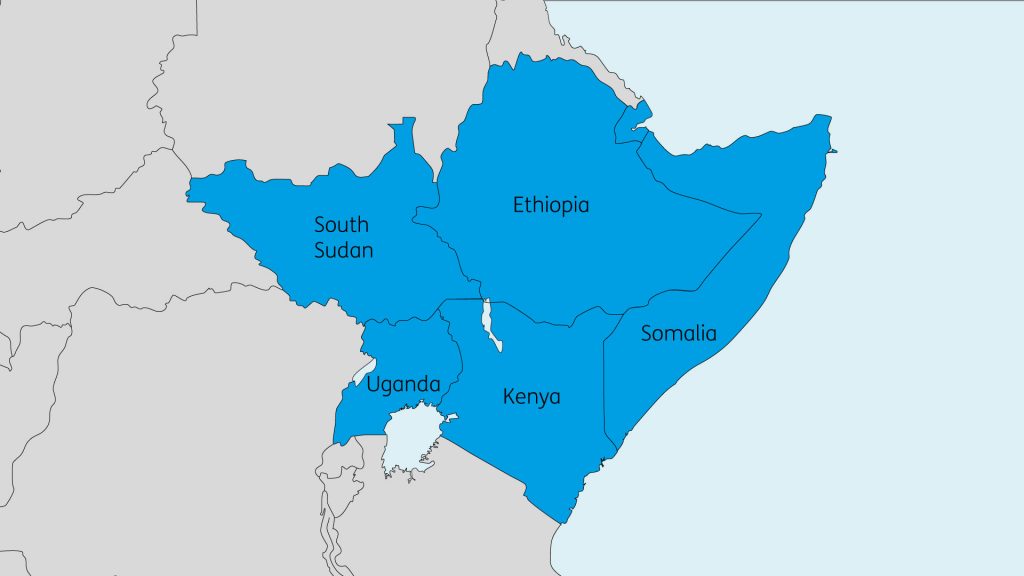
Map of East Africa showing where drought is
Rains have failed in the region for over two years now, due to rising sea temperatures caused by an El Nino phenomenon. The continuing nature of this emergency is making recovery much more difficult; grain stores which are kept for emergencies like this are being used up and there is no way to replenish them, as crops continue to fail.
The drought is also far-reaching, affecting a number of countries including Ethiopia, South Sudan, Kenya, and Uganda.
These countries share borders. When people migrate to find food, as often happens during emergencies, they are simply moving into similarly drought-hit areas. Escaping the disaster has become nearly impossible.
Continued lack of rains compounded by non-native pest invasions
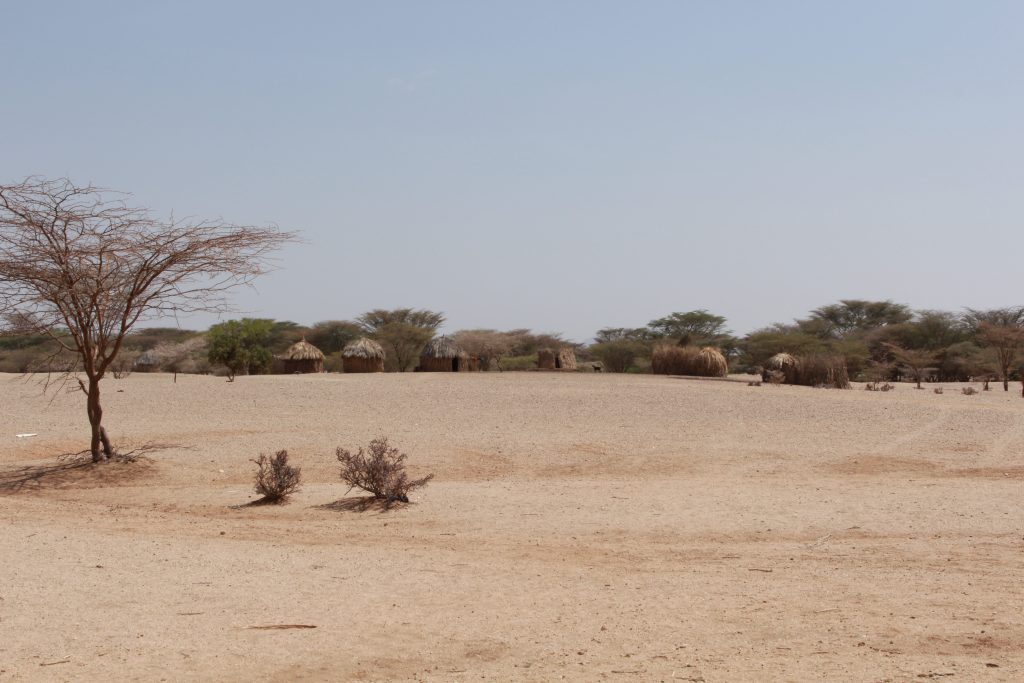
The Kenyan landscape during drought in September 2017
From March to May, the rains we had all hoped for failed to materialise, putting an immense strain on national gain supplies in Kenya and Ethiopia. This has also resulted in increased food prices and scarcity of water.
To make matters worse, ‘fall armyworms’ – a type of caterpillar that eats crops before turning into a moth – have now affected 520,000 hectares of maize cropland – almost a quarter of the area planted.
Violence, conflict and political complexities
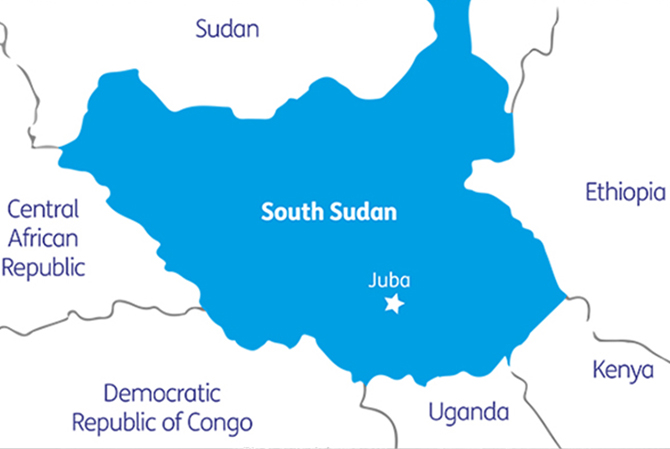
A map of South Sudan
Political complexities in Kenya make the situation even more difficult. In South Sudan, conflict, exacerbated further by the deepening drought, is leading to an influx of South Sudanese refugees in Ethiopia.
An average 350 refugees cross daily into Ethiopia’s border region of Gambella. 2 million of South Sudan’s population is already internally displaced (they have fled from their homes to other areas of South Sudan) and the continued displacement is worsening the food security situation in South Sudan given the symbiotic relationship between the two.
Compounding the situation further are cholera outbreaks, with 6,870 cases reported so far in 2017.
Aid is saving lives
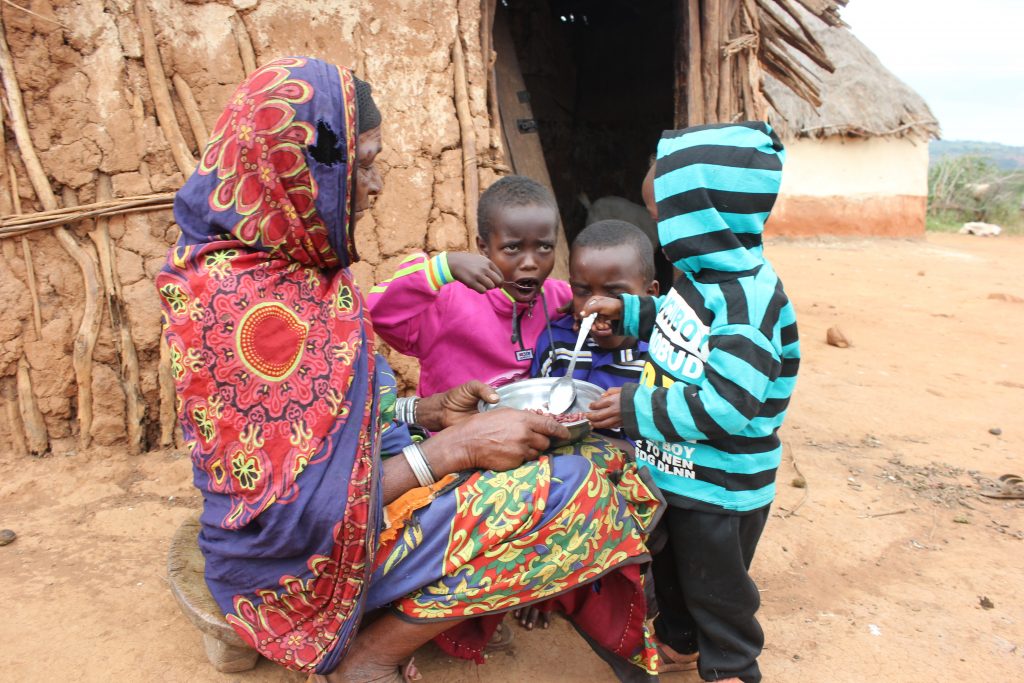
73-year-old Dima shares a meal with her grandchildren: ‘This food package helps my family survive. I am so grateful for the help.’
Although the drought is not improving, aid is getting through to people like Dima (pictured above) and saving lives. In fact, it is because the drought is not improving that aid is more vital than ever – we simply do not know when the next rains will come. Without food packages, older people in East Africa would have little to see them through.
You can help
£30 could buy food packages for 2 older people, for a month. Donate now.

We are a registered organisation working directly with the communities in rural areas and aiming at helping the elderly, vulnerable and disadvantaged people. We would like to submit our proposal for our project which is aimed at improving the lives of these elderly people in rural areas of kiruhura, Wakiso and mayuge districts of Uganda. Benjamin Muhumuza
Secretary
Bavelena foundation international
+256 754664818
We are a registered organisation working directly with the communities in rural areas and aiming at helping the elderly, vulnerable and disadvantaged people. We would like to submit our proposal for our project which is aimed at improving the lives of these elderly people in rural areas of kiruhura, Wakiso and mayuge districts of Uganda . We also request to grant us a van which can help us in carrying these old people at night whenever they are not feeling OK to take them to the nearest hospital . Benjamin Muhumuza
Secretary
Bavelena foundation international
+256 754664818